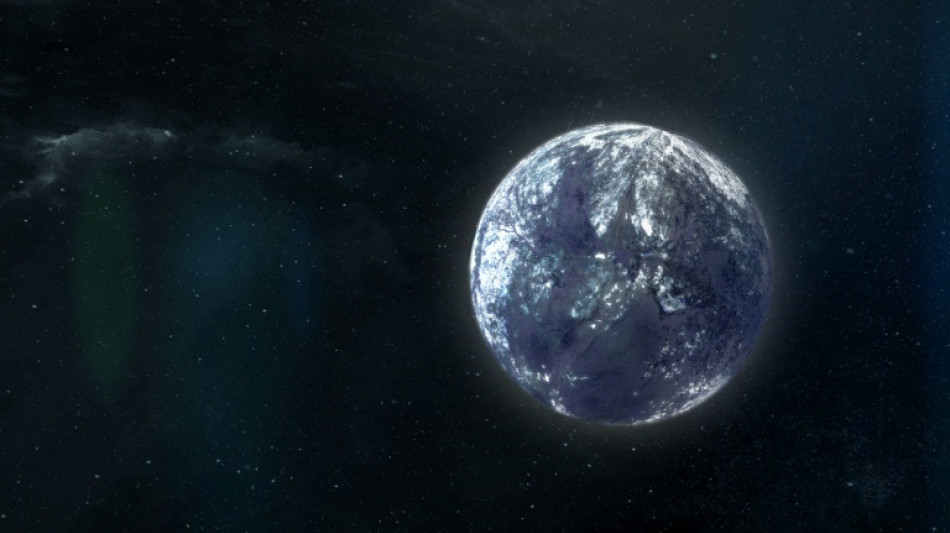
-
 Men's Fashion Week kicks off in Paris with tributes for Valentino
Men's Fashion Week kicks off in Paris with tributes for Valentino
-
Lake named as captain as Wales unveil Six Nations squad

-
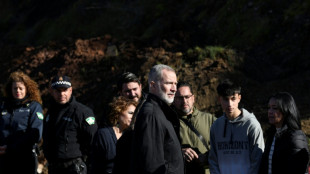 Royals visit deadly train crash site as Spain mourns
Royals visit deadly train crash site as Spain mourns
-
Police, pro-Kurd protesters clash at Turkey border with Syria

-
 Thai forces razed Cambodian homes on border: rights group
Thai forces razed Cambodian homes on border: rights group
-
Jellyfish-inspired Osaka battles into Australian Open round two

-
 Valentino taught us to respect women, says partner
Valentino taught us to respect women, says partner
-
Australia stiffens hate crime, gun laws after Bondi attack

-
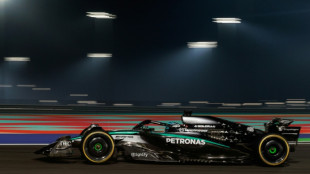 Mercedes chief designer Owen to leave F1 team
Mercedes chief designer Owen to leave F1 team
-
Trump unloads on allies as Davos showdown looms

-
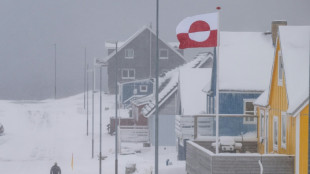 Moscow revels in Trump's Greenland plans but keeps concerns quiet
Moscow revels in Trump's Greenland plans but keeps concerns quiet
-
Global tourism hit new record level in 2025: UN

-
 Senegal poised to party with parade honouring AFCON champs
Senegal poised to party with parade honouring AFCON champs
-
Osaka emerges for Melbourne opener under hat, veil and parasol

-
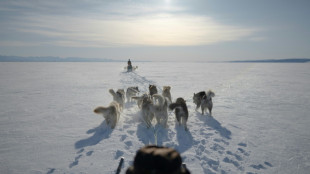 Dogsled diplomacy in Greenland proves elusive for US
Dogsled diplomacy in Greenland proves elusive for US
-
Almost half of Kyiv without heat, power, after Russian attack

-
 EU vows 'unflinching' response to Trump's Greenland gambit
EU vows 'unflinching' response to Trump's Greenland gambit
-
Osaka steals show at Australian Open as Sinner strolls through

-
 Brignone impresses in first run of Kronplatz giant slalom in World Cup comeback
Brignone impresses in first run of Kronplatz giant slalom in World Cup comeback
-
Osaka emerges for Melbourne opener under white hat and umbrella

-
 Malawi suffers as US aid cuts cripple healthcare
Malawi suffers as US aid cuts cripple healthcare
-
Bessent says Europe dumping US debt over Greenland would 'defy logic'

-
 Freeze, please! China's winter swimmers take the plunge
Freeze, please! China's winter swimmers take the plunge
-
Talks between Damascus, Kurdish-led forces 'collapse': Kurdish official to AFP

-
 In-form Bencic makes light work of Boulter at Australian Open
In-form Bencic makes light work of Boulter at Australian Open
-
Spain mourns as train disaster toll rises to 41
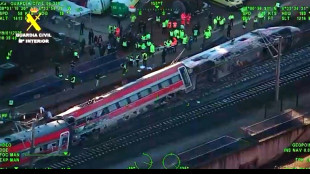
-
 Sinner into Melbourne round two as opponent retires hurt
Sinner into Melbourne round two as opponent retires hurt
-
Israel begins demolitions at UNRWA headquarters in east Jerusalem

-
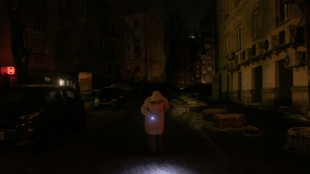 Almost half of Kyiv without heat, power, after Russian attack: govt
Almost half of Kyiv without heat, power, after Russian attack: govt
-
Veteran Monfils exits to standing ovation on Australian Open farewell

-
 Precision-serving former finalist Rybakina powers on in Melbourne
Precision-serving former finalist Rybakina powers on in Melbourne
-
South Korea's women footballers threaten boycott over conditions

-
 Equities sink, gold and silver hit records as Greenland fears mount
Equities sink, gold and silver hit records as Greenland fears mount
-
Australian lawmakers back stricter gun, hate crime laws

-
 EU wants to keep Chinese suppliers out of critical infrastructure
EU wants to keep Chinese suppliers out of critical infrastructure
-
AI reshaping the battle over the narrative of Maduro's US capture

-
 Penguins bring forward breeding season as Antarctica warms: study
Penguins bring forward breeding season as Antarctica warms: study
-
Vietnam leader pledges graft fight as he eyes China-style powers

-
 Ukrainian makes soldier dad's 'dream come true' at Australian Open
Ukrainian makes soldier dad's 'dream come true' at Australian Open
-
'Timid' Keys makes shaky start to Australian Open title defence

-
 Indiana crowned college champions to complete fairytale season
Indiana crowned college champions to complete fairytale season
-
South Koreans go cuckoo for 'Dubai-style' cookies

-
 Harris leads Pistons past Celtics in thriller; Thunder bounce back
Harris leads Pistons past Celtics in thriller; Thunder bounce back
-
Tjen first Indonesian to win at Australian Open in 28 years

-
 Long-delayed decision due on Chinese mega-embassy in London
Long-delayed decision due on Chinese mega-embassy in London
-
Djokovic jokes that he wants slice of Alcaraz's winnings

-
 Trump tariff threat 'poison' for Germany's fragile recovery
Trump tariff threat 'poison' for Germany's fragile recovery
-
Tourists hit record in Japan, despite plunge from China

-
 Jittery Keys opens Melbourne defence as Sinner begins hat-trick quest
Jittery Keys opens Melbourne defence as Sinner begins hat-trick quest
-
The impact of Trump's foreign aid cuts, one year on


Starless and forever alone: more 'rogue' planets discovered
The Euclid space telescope has discovered seven more rogue planets, shining a light on the dark and lonely worlds floating freely through the universe untethered to any star.
Without being bound to a star, as the Earth is to the Sun, there are no days or years on these planets, which languish in perpetual night.
Yet scientists believe there is a chance they could be able to host life -- and estimate there may be trillions dotted throughout the Milky Way.
Last week the European Space Agency released the Euclid telescope's first scientific results since the mission launched in July.
Among the discoveries were seven new free-floating planets, gas giants at least four times the mass of Jupiter.
They were spotted in the Orion Nebula, the nearest star-forming region to Earth, roughly 1,500 light years away.
Euclid also confirmed the existence of dozens of other previously detected rogue planets.
Spanish astronomer Eduardo Martin, the lead author of a pre-print study published on arXiv.org Friday, said this was likely just the "tip of the iceberg".
Because they do not reflect the light of a star, spotting rogue planets is like "finding a needle in a haystack", Martin told AFP.
Younger planets, such as those discovered by Euclid, are hotter, making them a little easier to see.
- 'Awe and mystery' -
Some research has suggested there are around 20 rogue planets for every star, which could put their number in the trillions in our home galaxy alone.
Given there are thought to be hundreds of billions of galaxies across the universe, the potential number of free-floating worlds becomes difficult to fathom.
When NASA's Roman space telescope launches in 2027 it is expected find many more rogue planets, possibly offering clarity about how many could be out there.
Gavin Coleman, an astronomer at the Queen Mary University of London who was not involved in the Euclid research, said these strange worlds often evoked "feelings of awe and mystery".
"We've all grown up with the Sun in the sky, and so to think of a planet just drifting throughout space with no star on their horizon is fascinating," he told AFP.
But not all rogue planets wander alone. Four of the more than 20 confirmed by Euclid are believed to be binaries -- two planets orbiting each other in a single system.
- Could they host life? -
If rogue planets are habitable, they could be a key target in humanity's search for extraterrestrial life.
"Some of our closest neighbours are likely rogue planets," Martin said.
Lacking heat from a nearby star, free-floating planets are believed to be cold, with frozen surfaces.
That means any life-supporting energy would have to come from inside the planet.
Most of Neptune's energy comes from within, Coleman pointed out.
And geothermal vents allow animals to survive on Earth that have never seen the Sun's rays.
But even under the best conditions, this extreme isolation would likely be able to support only bacterial and microbial life, Coleman said.
- Advantage of being alone -
Rogue planets could be thought of as traversing a lonely path through the cosmos.
But "being around a star has its downsides", said study co-author Christopher Conselice, professor of extragalactic astronomy at the UK's University of Manchester.
One particular downside comes to mind.
Once the Sun becomes a red giant -- in an estimated 7.6 billion years -- it will greatly expand, swallowing the Earth.
Rogue planets do not have to worry about eventually being destroyed by a star. "These things will last forever," Conselice told AFP.
"If you don't mind the cold temperatures you could survive on these planets for eternity."
The Euclid study also offered clues to how rogue planets are created, Conselice said.
Some could be formed in the outer part of a solar system before getting detached from their star and floating away.
But the study indicates that many rogue planets may be created as a "natural byproduct" of the star-formation process, he said.
This suggests a "really close connection between stars and planets and how they form", he said.
"There's no firm answers yet," he added.
H.Weber--VB



